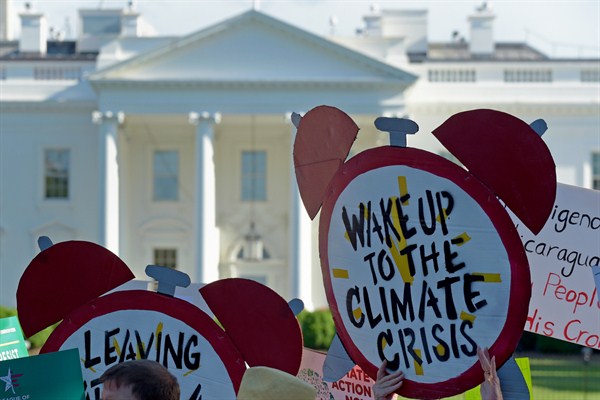Almost a century after the U.S. Senate rejected the Covenant of the League of Nations, President Donald Trump last week formally announced that the United States would begin quitting the Paris climate agreement, the most important multilateral convention of the 21st century. Future historians may well look back on these twin abdications as bookends to the “American century,” underscoring enduring U.S. ambivalence toward globalism and defensiveness regarding national sovereignty. The tale of these two Paris treaties reveals both how much the global agenda has changed and how little the U.S. has learned since 1919.
From its founding until World War I, the U.S. generally hewed to the advice of George Washington and Thomas Jefferson to eschew permanent international commitments. Having established a constitutional republic based on popular sovereignty, Americans were wary of any attachments that might permit foreign powers to subvert their self-government and liberties at home or to restrict their freedom of action abroad. The nation’s sense of exceptionalism reinforced the notion that it should be free to pursue its own providential course in world affairs. Finally, the separation of powers, as well as the powers reserved to individual U.S. states within the nation’s federal system, complicated the assumption of international obligations, particularly treaties.
In taking the U.S. into World War I and committing it to help organize a new postwar structure for maintaining peace, President Woodrow Wilson challenged this tradition of unilateral detachment. Wilson’s envisioned instrument was the Covenant of the League of Nations, negotiated at the Paris Peace Conference. Article 10 of that treaty would have committed the U.S., at least in principle, to defend the territorial integrity and political independence of every country in the world.

